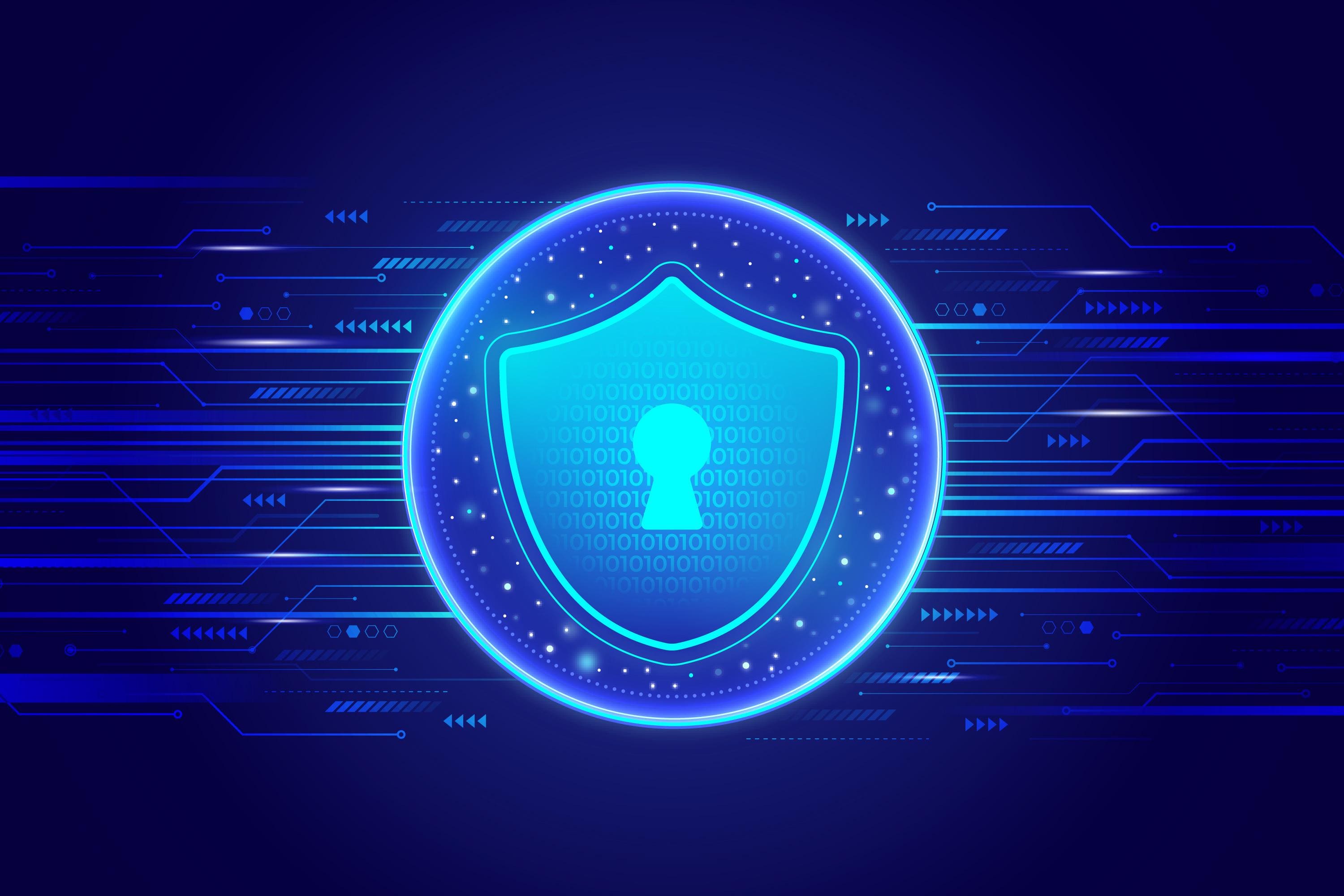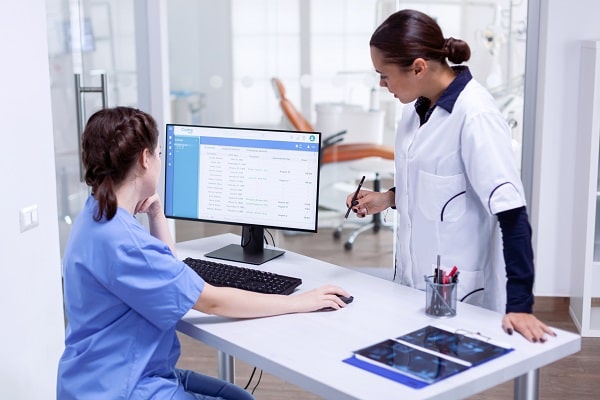Ways to Protect Your Practice from Cyber Security Risks!
Long gone are the days when people used to take notes while learning or during businesses on their paper notebooks with a pen. Digitalization is the way forward today and this digital revolution has touched all the spheres of life. Whether it is the medical industry or the automobile, the retail industry, or the finance sector, digitalization is prominent in every other industry of now.
The healthcare industry, much like all other industries, has embraced the digital boom with open arms. Practices, which are now on rising, and are widely reputed to house the best doctors and physicians and diagnose the patients with utmost care and the latest available technology, are really looking forward to equipping themselves with the cutting-edge digital technology for the benefit of the patients.
81% of the patients stated that they are unsatisfied with the healthcare experience that they have received in recent years and are looking to switch their providers. Here, a major portion of these patients has been discovered to have received a poor digital experience. As the age we are living in is meant to be for digital technology, the practices of now are fast coping with the patient demands of the latest digital technologies and equipment. Digital technology has also been helping the patients and practices in ways more than one, thereby proving to be a boon for them both. However, one major drawback, which has arisen due to digital software and technology is the cybersecurity risks.
Yes, though the digital age has been the solution to numerous other problems that used to previously bother the patients as well as the practices, it is true that they are also not completely out of risk. The cybersecurity issues, sometimes, not only challenge one or two practices but the entire digital system across products and industries too.

Why is Security Essential for the Healthcare Practices?
We are all aware that the national data is a secure piece of information that should be safeguarded from others within and outside the nation who want to utilize the data for unlawful or unethical purposes and gain money, fame, or any other benefits out of it. The healthcare industry is also one of those industries that deal with secure information, related to the patients, who are also the citizens of a country, which needed to be handled with utmost care.
The healthcare industry deals with the personal/protected health information of the patients, which should be safeguarded from others. Such information is guarded by the HIPAA guidelines and more, which helps the practices to receive and regulate patient-sensitive information smoothly and effectively. Compliance is the key to successful service in the healthcare industry because the medical industry runs on trust. Yes, it is the patient's trust, along with all of his/her critical data that the practices handle, and it is better that it is done with utmost care in order to boost the patient experience and the overall patient satisfaction ratings. Cyber security awareness is needed indeed for the healthcare industry of now in order to help the new-age practices cope with the norms of the industry.
According to a recent survey, over 78% of the patients said that they would rather go for a secure online method to share their personal information with their doctor and access their medical histories instead of following the traditional ways.
Here's why data security is essential for healthcare practices:
The Healthcare industry runs on trust
Credibility is the key to running successful businesses and more so when it comes to the healthcare industry and its practice units. Therefore, secure systems are a must for healthcare practices. Right from the scheduling of the patients' appointments to the diagnosis and the eventual follow-up, the whole process should be secure and seamless to benefit the patients and the practice at large.
The patients don't want to part with their personal data
Parting with their personal data is the last thing that the patients want to do, especially in these times, when data is as valuable as oil. Hospitals and practices store enormously large amounts of data and this data can be easily handled and sold by the hackers online, who are forever on the hunt for medical data. Besides, they also rely on ransomware products to attack the systems of the practices that demand a good deal of money from the practices on behalf of giving their data away. However, with GrowPractice's secure medical software products and systems, protecting all these data will become easier than ever because it implements multiple-layered security for the practices.
Data security in the healthcare industry concerns national security
Security of data, especially that from the healthcare practices and other medical data should always be impregnable because medical data can also risk national security. A country/nation is primarily made up of its citizens. So, the patients' data, who are the citizens of the country, fall in the hands of the rivaling nations or any other criminals/anti-nationals, then the security of the nation can also be at stake.
The patients want absolute security
Security is something that the patients cannot simply compromise with. The breaches of medical data, and if this data is used by the hackers for any unethical purposes, then the patients are always at a risk of having their security compromised monetarily as well because their insurance claims and bank accounts also remain involved with the same.
With GrowPractice, on the other hand, the patients can remain at ease and without worrying a bit about their security because of the highly effective medical and dental software and systems that Growpractice offers, which are secure, encrypted, and HIPAA-compliant. According to a survey conducted in 2020, around 17% of the cyber attacks led to serious damage or injury of the patients. On the other hand, 30% of them cause major disruptions in the emergency services and their operation.
Cybersecurity can save the practice revenues
Universal Health Services Inc. said in a statement that a malware attack they faced in late September 2021 had cost them over $67 million before taxes. Therefore, such cyberattacks could never be given room by any practice. The cybercrimes including ransomware heavily impact the practices and if the data is compromised in any step of a patient's journey from any of its departments, it is always the practice's responsibility, and retrieving such data can often be difficult, and costly as well.
The patients of this digital age that we are living in are informed and aware of the risks that the age brings to them. According to the recent survey, 81% of the patients now prefer to schedule their own appointment via a secure web service and not with any other services that look shady and from where their data is likely to get compromised.
Besides, the patients now are always ready to switch their providers if their security criteria are not met. Furthermore, it has also been recently discovered during the latest survey, where around two-thirds (65%) of the patients who responded, stated that they would not go for the medical providers who have already experienced data breach issues in recent times. Thus, if a particular practice has witnessed data breach or other security issues, then a majority of the patients would steer clear of the particular practice, which would taint the reputation of the same beyond measure.
Who poses cyber security risks to the healthcare industry and its practices?
The healthcare industry certainly has a wide variety of information that is patient-sensitive, mainly associated with personal data, case history, illnesses, and more, which are often called protected health information or termed as PHI and need to be kept secure . However, there are numerous strata of people and agencies who try time and again to loot the data from the healthcare units and practices, and can easily be termed as some of the biggest threats for the healthcare information systems. So, let's have a look at all those streams from where cybersecurity risks usually peek into the systems installed in the healthcare practices:
Intelligence agencies from the foreign lands
The Intelligence agencies keep a track of the data that is harmful to the nation's security and of each of its states. However, there are many Foreign Intelligence Agencies that are operated by some countries, which are always bent on gathering reports and going through all the data that they can of other countries. These agencies are equipped with amazing capabilities that often try to infiltrate the security systems of the healthcare practices too.
Recently, to track the development of the vaccine for the COVID-19 diseases, APT29 was on the radar, as informed by the National Cyber Security Center (NCSC) of the United Kingdom, and the Communications Security Establishment (CSE) of Canada. The APT29 was declared by both the intelligence groups as a cyberespionage group that reportedly belongs to the Russian intelligence services, which targeted the global developmental efforts on COVID-19.
Insiders
The problem is not always outside, though most of us think that is, but inside of an organization. Yes, looking outside for threats is not always the right remedy to get rid of the security risks, especially if it is associated with cybersecurity because the trader of the information might just happen to be in your organization and working for the same. Therefore, if you are a manager or the owner of a healthcare practice and worried about cybersecurity threats, then it is always great if you first look within your organization for risks. You might just be lucky enough to find some problematic insiders, whom you can quickly fire in order to safeguard the privacy and security of your practice.
Carefree or negligent employees
Though many employees are clever, belong to rival groups or foreign intelligence, and are always on the eye to looting your practice of its secure data, some employees can just be as careless in work as they can be. This carefree nature of the healthcare employees and their negligence is discovered time and again, which equally risks the security of the practices.
Phishing attacks from organizations and individuals
We are all aware of phishing attacks. All of us get spam or phishing emails every now and then in our lives, during our daily tasks, but these emails are to be kept an eye on when it comes to an industry that is as vulnerable to security risks as the healthcare industry. Phishing and spam emails, which appear generally as unsolicited emails with false information or hidden information, are mostly aimed at stealing sensitive patient information (PHI). Most of the individuals or organizations that target healthcare practices via phishing/spam emails do so mainly for monetary gains.
Cybercrime groups
Numerous cybercrime groups carry out several targeted campaigns that need to be a part of today's cyber security awareness. A majority of these campaigns rely on the techniques of social engineering to commit identity fraud.
Bots
There are bot network operators that are deemed to infiltrate the vulnerable systems and get their access. These bot units are then used to trade all this information illegally on the dark web. Such activities are generally done both by organizations and individuals to cash out some income out of it. Denial of Service (DoS) attacks, phishing, or relaying spam emails are some of the various tools that these organizations generally use.
Espionage
There are spies all around us, which we simply fail to realize. Espionage is possible and can be spotted at the industrial level, staff level, or a nation or state level, which is used mainly to gain a competitive edge over their peers and rivals.
Prominent Cybersecurity Risks for Healthcare Practices
Cybersecurity can certainly be one of the toughest of challenges for all the industries of now, which includes the healthcare industry as well. The healthcare industry and its medical offices are full of data that are sensitive to breaches and are usually protected by the HIPAA guidelines but only some practices manage to keep their data HIPAA-compliant, which brings GrowPractice into play. The leading medical office software and service providers assure the healthcare practices that they can manage their data effortlessly while keeping them secure and HIPAA-compliant now with GrowPractice's advanced medical office software, patient management, and practice management systems.
Reaching out to GrowPractice is one of the best things that you can do if you are the owner/manager of a healthcare practice and you wish to increase its data security and HIPAA compliance.
There can be reasons more than one due to which the healthcare data can be compromised. Here's a list of the major weaknesses when it comes to the healthcare practices for which they have been prey to the exploitation by the fraudsters and tricksters are:
Seeing the huge risk of data breaches and violation of compliance, which leads to the loss of data and/or risking it on insecure grounds, the healthcare practices should now be highly motivated to secure the patient-personal and other data that are meant to be secure. This can be done without worries by going for these effortless ways mentioned below.
Effortless Ways to Protect Your Practice from the Risks Associated with Cybersecurity
The healthcare breaches in the US, as per the reports in 2020, witnessed a rise from 599 from 386 cases that it saw in 2019, which sums up to be an increase of 55.1%. Staying concerned about the security of the healthcare provider you work for, thus becomes a part of your duty.
If you are concerned about the growing cybersecurity risks, then it's time to let go of your worries. You particularly are worried about how your provider will grow its revenues without any major hindrance to it and this is why you are perhaps much concerned about the risks involved with cybersecurity.
However, dodging cybersecurity risks is equally easy now if you are informed and updated with the latest medical office software and systems that GrowPractice brings your way. Here is a list of some quick tips that can help you conquer your fears concerning cybersecurity:
Enable multi-level security process to reduce the risk of cybersecurity
Take guard of the HIPAA-compliance
Whether you are the owner/manager of a medical or it is a dental practice that you are in charge of, you must understand the HIPAA guidelines and you are equipped with all the ways that will make your practice HIPAA-compliant. You need not worry about it if you are not informed of the same because you will have GrowPractice by your side, which will help you get the latest medical software that is built to be HIPAA-compliant and ensure that your practice always operates by the guidelines mentioned in the Health Insurance Portability and Accountability Act, which came to existence in 1996.
Hire effective professionals as employees
Employees are always a major risk for an organization along with being an asset for the same because if an employee turns worse and is still retained by the company, then the particular individual might prove to be extremely dangerous for the firm. Though the healthcare industry has to handle tons of data each day that are ought to be kept secured, a good deal of responsibility also lies on the employees to keep the data secure. Therefore, to avoid all the risks that are associated with the employees, the healthcare practices should make it an aim to hire experienced medical professionals who will promise to serve their provider by keeping the data security intact at all times!
Use secure third-party software and products
We have already seen that a major portion of the patients today are wanting to use secure patient portals to access their data and secure web service to book their appointments. A healthcare practice must bring in secure digital processes in every aspect of the patients' journey to make it comfortable for the patients and build in their credibility by providing a decent patient experience over time. In a recent survey, it has been discovered that over 69% of patients are more likely to go for medical providers that encourage the patients o communicate with secure email services. Here's where GrowPractice will help you up your game with its HIPAA-compliant two-way texting process that will hugely help the practices to know of the patient's requirements while keeping the same HIPAA-compliant.
Reassess the security in your practice
Monitoring the performance of practice is essential to its growth. Furthermore, it is also important that the practice keep a track of its security as well. This can easily be achieved by assessing the security of the practice periodically in a monthly or weekly format. This will help the practice keep a track of its security loopholes and better its security.
Use strong passwords and verification systems
The usage of strong passwords and verification systems is a must in a patient-centric environment, where the loss of even the smallest bits of data can cost much. Strong passwords and other latest verification procedures would certainly help the practices keep its cybersecurity issues in check for sure.
Use robust data encryption practices
Decent data encryption is something that you simply cannot miss when it comes to healthcare practice. GrowPractice makes sure that your practice and all of its data are strongly encrypted in order to secure the medical data appropriately, thereby keeping them out of harm's way.
Multifactor authentication is a must
Authentication of patients and the healthcare staff is something that can lead to numerous misdeeds. This is why they ought to be secured with effective, new technologies and multifactor authentication processes.
Integrate training against cybersecurity risks
With the increase in cybersecurity risks, cyber security awareness must become a part of the healthcare industry. This is well be done if its starts with the practices. The practices can get hold of improved cybersecurity methods by training themselves in cybersecurity by partnering with reputed cyber security companies. This can well serve as study materials for the medical workers working for the practices, who would also be assessed on the same to make it more secure and help things become more informed, updated, and secure.
Though the risks pertaining to cybersecurity are many, it is true that with the help of reliable medical software and products from GrowPractice, the practices of today can stay secure and safeguard their data from cyberattackers' reach.
Here's how GrowPractice plans to help your practice from cybersecurity risks:
HIPAA-compliant two-way texting processes
The HIPAA-compliant two-way texting process not only helps the practice abide by the HIPAA guidelines but also ensures that the practice is always informed of the patients' decisions. This has reduced no-shows by 89% and boosted the patient satisfaction ratings by 97%.
Strong data encryption practices
Data encryption is the way to go today adn GrowPractice brings formidable data encryption into practice for the healthcare practices of today.
Multi-level security
Being a leading provider of medical office software and system, GrowPractice assures the practices of multi-layered security, which safeguards patient-sensitive information from all sides.
GrowPractice is marked for the security that it provides with its software solutions for the practices. The medical office, patient management, and practice management software solutions provider is entrusted by numerous US Federal Government Agencies along with other private medical offices/practices and urgent care units for the quality and security it extends. So, don't delay, hurry up and choose GrowPractice as your practice software solution. Don't let security be a hindrance to your growth and revenues!



